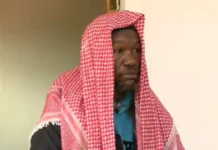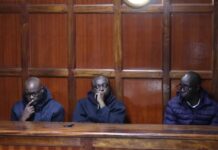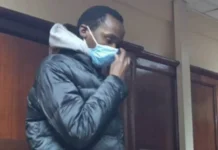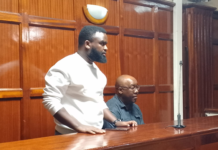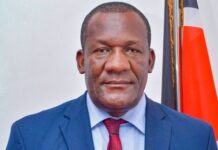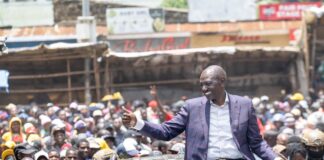A Nairobi court witnessed a series of contentious testimonies on Monday in the case against David Oaga Mokaya, a university student accused of publishing a misleading social media post implying President William Ruto had died.
The testimony of Chief Inspector Bosco Kisau of the Serious Crimes Unit has raised eyebrows over investigative procedures and factual inconsistencies.
Kisau testified that he was dispatched to Eldoret following a complaint about the post, and that detectives confiscated Mokaya’s mobile phone, laptop, and ID card.
However, under cross-examination by Law Society of Kenya (LSK) lawyers, several blunders emerged.
The officer admitted he could not confirm the origin, source, or location of the post, and that no statement had been recorded from the President regarding the alleged incident.
When asked whether the disputed post contained a photo of President Ruto, Kisau conceded that it did not—instead, it showed a casket draped in the Kenyan flag, accompanied by an anthem and a caption referencing “President Ruto.”
Kisau also acknowledged that the post did not mention the President’s full name, leaving room for interpretation. Defense lawyers argued this could apply to any Kenyan with the surname Ruto, undermining claims of intent to mislead the public.
Legal analysts say these gaps in the prosecution’s evidence may complicate the case, highlighting concerns over the handling of politically sensitive online speech.
Mokaya, who has pleaded not guilty, appeared before Senior Principal Magistrate Benmark Ekhumbi and was granted bond of Ksh. 100,000 or cash bail of Ksh. 50,000.
The trial continues, with observers closely watching whether investigative lapses and witness inconsistencies will influence the outcome of this high-profile case.










